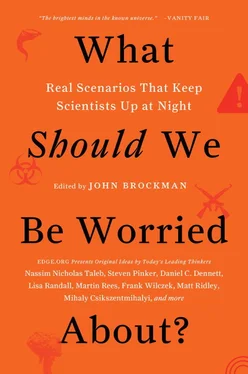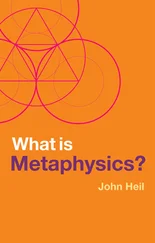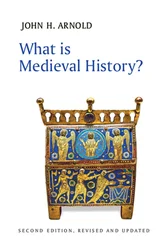For example, one route to discovering alternative forms of governance may begin with the secession of a few cities from their parent nations, or in the creation of new cities from scratch, operating under rules different from those in the rest of the country. It’s hard to imagine elected politicians getting away with such things, however, even if they wanted to. The only historical precedents so far have occurred in autocratic regimes, where leaders do not have to worry about reelection. The wave of special economic zones in China in the 1980s, beginning with Shenzhen, was driven by a small cadre of unelected officials headed by Deng Xiaoping.
I think we should worry that democracy may turn out to be a historical cul-de-sac, a place that looks pleasant enough from far away but doesn’t lead anywhere better.
THE IS-OUGHT FALLACY OF SCIENCE AND MORALITY
MICHAEL SHERMER
Publisher, Skeptic magazine; monthly columnist, Scientific American ; author, The Believing Brain
Ever since the philosophers David Hume and G. E. Moore identified the is-ought problem—the discrepancy between descriptive statements (the way something is) and prescriptive statements (the way something ought to be), most scientists have conceded the high ground of determining human values, morals, and ethics to philosophers, agreeing that science can only describe the way things are but never tell us how they ought to be. This is a mistake.
We should be worried that scientists have given up the search for determining right and wrong and which values lead to human flourishing, just as the research tools for doing so are emerging from such fields as evolutionary ethics, experimental ethics, neuroethics, and related fields. The is-ought problem (sometimes rendered as the naturalistic fallacy) is itself a fallacy. Morals and values must be based on the way things are, in order to establish the best conditions for human flourishing. Before we abandon the ship just as it leaves port, let’s give science a chance to steer a course toward a destination where scientists at least have a voice in the conversation on how best we should live.
We begin with the individual organism as the primary unit of biology and society, because the organism is the principal target of natural selection and social evolution. Thus the survival and flourishing of the individual organism—people, in this context— is the basis of establishing values and morals, so determining the conditions by which humans best flourish ought to be the goal of a science of morality. The constitutions of human societies ought to be built on the constitution of human nature, and science is the best tool we have for understanding our nature. For example:
• We know from behavioral genetics that 40 to 50 percent of the variance among people in temperament, personality, and many political, economic, and social preferences is inherited.
• We know from evolutionary theory that the principle of reciprocal altruism—I’ll scratch your back if you’ll scratch mine—is universal; people do not by nature give generously unless they receive something in return.
• We know from evolutionary psychology that the principle of moralistic punishment—I’ll punish you if you do not scratch my back after I have scratched yours—is universal; people do not long tolerate free riders who continually take but never give.
• We know from behavioral game theory about within-group amity and between-group enmity, wherein the heuristic is to trust in-group members until they prove otherwise to be distrustful, and to distrust out-group members until they prove otherwise to be trustful.
• We know from behavioral economics about the almost universal desire of people to trade with one another, and that trade establishes trust between strangers and lowers between-group enmity, and also produces greater prosperity for both trading partners.
These are just a few lines of evidence from many different fields of science that help us establish the best way for humans to flourish. We can ground human values and morals not just in philosophical principles—such as Aristotle’s virtue ethics, Kant’s categorical imperative, Mill’s utilitarianism, or Rawls’ fairness ethics—but in science as well. Consider the following example of how science can determine human values.
Question: What is the best form of governance for large modern human societies?
Answer: a liberal democracy with a market economy.
Evidence: liberal democracies with market economies are more prosperous, more peaceful, and fairer than any other form of governance tried.
Data: In their book Triangulating Peace , the political scientists Bruce Russett and John Oneal employed a multiple logistic regression model on data from the Correlates of War Project that recorded 2,300 militarized interstate disputes between 1816 and 2001. Assigning each country a democracy score between 1 and 10 (based on the Polity Project that measures how competitive its political process is, how openly leaders are chosen, how many constraints on a leader’s power are in place, etc.), Russett and Oneal found that when two countries are fully democratic, disputes between them decrease by 50 percent, but when the less democratic member of a country pair is a full autocracy, it doubles the chance of a quarrel between them.
When you add a market economy into the equation, it decreases violence and increases peace significantly. For every pair of at-risk nations for which Russett and Oneal entered the amount of trade (as a proportion of GDP), they found that countries depending more on trade in a given year were less likely to have a militarized dispute in the subsequent year—controlling for democracy, power ratio, great-power status, and economic growth. So they found that democratic peace happens only when both members of a pair are democratic, but that trade works when either member of the pair has a market economy.
Finally, the third vertex of Russett and Oneal’s triangle of peace is membership in the international community, a proxy for transparency. The social scientists counted the number of IGOs (Intergovernmental Organizations) that every pair of nations jointly belonged to and ran a regression analysis with democracy and trade scores, discovering that democracy favors peace, trade favors peace, and membership in IGOs favors peace, and that a pair of countries in the top tenth of the scale on all three variables are 83 percent less likely than an average pair of countries to have a militarized dispute in a given year.
The point of this exercise, as further developed by Harvard psychologist Steven Pinker, is that in addition to philosophical arguments we can make a scientific case for liberal democracy and market economies as a means of increasing human survival and flourishing. We can measure the effects quantitatively and from that derive science-based values that demonstrate conclusively that this form of governance is really better than, say, autocracies or theocracies. Scholars may dispute the data or debate the evidence, but my point is that in addition to philosophers, scientists should have a voice in determining human values and morals.
DAVID CHRISTIAN
Professor of history, Macquarie University, Sydney; author, Maps of Time: An Introduction to Big History
The 2013 Edge Question invites us to identify issues that are not on the public radar but should be—questions that ought to be hot topics in schools, homes, parliaments, in the media, in the U.N. Here’s an old, old question that has dropped off the radar: What is a “good life?” Providing everyone with the foundations for a good life is a basic goal of public policy. Yet how little public debate there is about the real meaning of a good life.
Читать дальше












